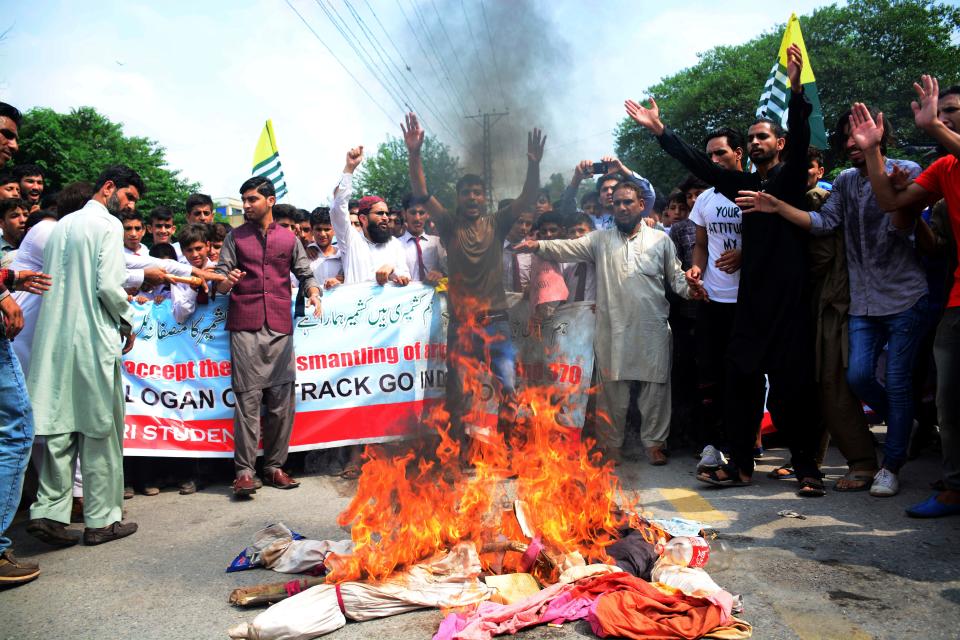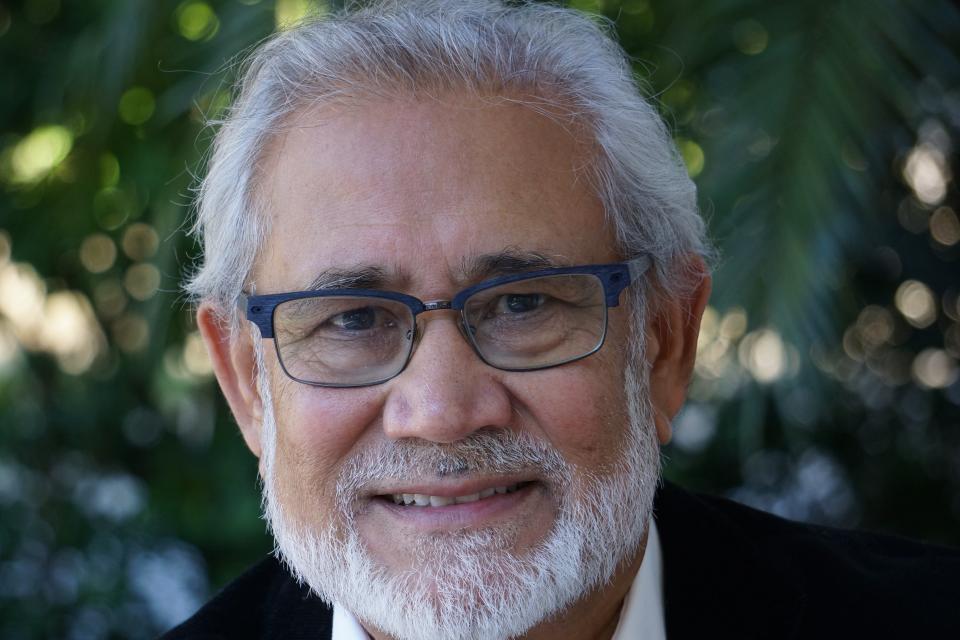Kashmir, rugged and beautiful, is a ticking time bomb between India and Pakistan
When Americans hear the news about Kashmir — a flashpoint of Indo-Pakistan conflict — they simply move on to the next news story. That is, if Americans pay any attention to it at all.
The facts: Kashmir is a ticking time bomb. A nuclear exchange is more likely to occur on the Indian subcontinent than on the Korean Peninsula, resulting in billions of casualties.
The history: A legacy of the colonial rule that partitioned India, creating Pakistan, leaving the disputed Kashmir region to a future referendum, per a 1948 United Nations Security Council resolution. Kashmiris were to choose to join either India or Pakistan, or vote for their own independence. That process was eventually blocked by India.
The current right-wing Indian government, in revoking the region's status as a special state, precipitated a fresh crisis. Kashmir is under a communications blackout, cut off from the rest of the world. Neglected and abused for seven decades, today, the mostly Muslim Kashmiris are fiercely independent.
Rugged and beautiful, the paradise of Kashmir is burning. Fanning the flames are the nationalists, militants and religious zealots on all sides willing even to risk a nuclear winter.

There’s much at stake for my interfaith family. Ours is a Hindu-Muslim union. I dread the prospect of any war — surely to affect communal relations, affecting 200 million mainland Muslims of India who face daily threats of lynching and persecution by Hindu extremists in parts of India.
If hostilities break out, it’ll further affect their lives.
A beautiful landscape, divided by hate
I first saw this legendary land in the summer of 1967, before coming to America. I still cherish the fond memories. When I hear Kashmir, I think of the fragrant saffron fields, which legend holds were introduced by Sufis. I think of 100-foot-tall Chinar trees with their wide, shady canopies. I recall the houseboats, anchored in Dal Lake, and the gondola-like boats, called shikara, slowly moving across the lake.
My long, slow journey into Kashmir began at the Himalayan foothills. Travelling along the winding mountainous paths, the 200-mile journey took 12 hours. Night driving wasn’t recommended. We stopped, and I slept outdoors on a cot. As I lay looking up at the stars, I heard devotional hymns and bells from a shrine farther up in the mountains, lulling me to sleep.
What do we expect out of education?: My university investigated me for quoting James Baldwin's use of the 'N-word'
Next day, we drove through a dimly lit tunnel through the Banihal mountain pass, often called the "Gateway of Kashmir,” emerging into a vast, lush valley surrounding a mirror-like lake reflecting snow-peaked mountains. The iconic Jhelum River flows peacefully as well. In better times, Indian elites and international tourists enjoyed the serene and cool summer months.

Everyone knows the story of Taj Mahal, built as an act of love. But Kashmir boasts another world heritage site that was born of love. Jahangir, the Mughal emperor, built beautiful gardens to honor his beloved wife, Nur Jahan, with terraced pools, waterfalls and elaborate landscaping known as Shalimar (“abode of love” in Sanskrit).
Deported to a country he had never known: Jimmy Al-Daoud’s diabetes didn't kill him — being deported to Iraq by Trump's ICE did
When Jahangir finished his gardens, he had an inscription carved in stone from the Sufi poet Amir Khusro: “If there is a paradise on earth, it is this! It is this! It is this!”
These Muslim rulers were environmentalists, appreciating God’s artistry in nature.
The U.N. Educational, Scientific and Cultural Organization sums up the charm of the graceful gardens: “The outstanding quality of Shalimar Bagh lies in the synthesis of its landscape and architectural features. The wider setting of the rural agricultural landscape, the rice fields and hamlets, the historic canal that links the garden to Dal Lake, and the mountain backdrop, all contribute to the significance of Shalimar Bagh.”
There’s so much of God’s beauty cradled in Kashmir — a destination of love and peace. But devastating, hate-filled actions have overtaken this contested land.
Our world, facing a present and immediate danger, must find ways to diffuse this time bomb.
Victor Begg is author of the 2019 memoir “Our Muslim Neighbors.” This column originally appeared in the TC Palm. Follow him on Twitter: @ghalibbegg
You can read diverse opinions from our Board of Contributors and other writers on the Opinion front page, on Twitter @usatodayopinion and in our daily Opinion newsletter. To respond to a column, submit a comment to letters@usatoday.com.
This article originally appeared on Treasure Coast Newspapers: India-Pakistan Kashmir conflict: Tensions close to their boiling point

